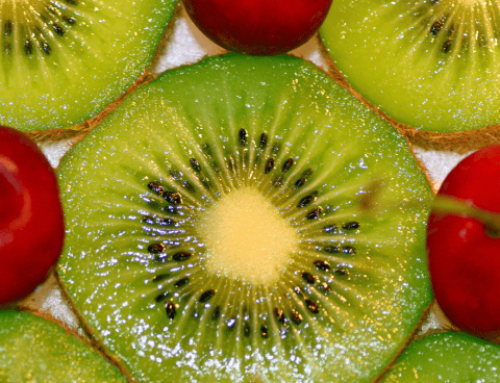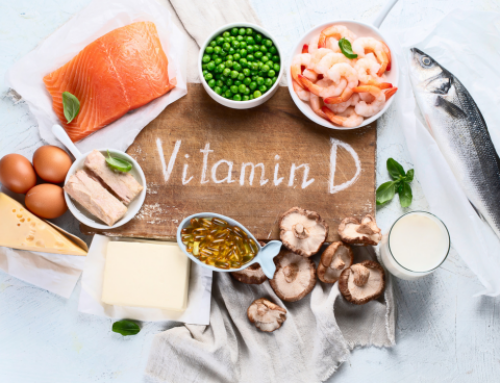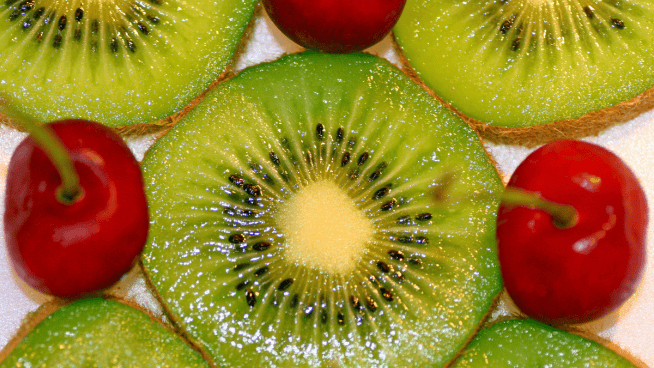What Your Vegan or Vegetarian Diet is Missing
A plant-based diet has several powerful and extraordinary effects on your health, lifespan, and quality of life. Indeed, eating foods like fruits, vegetables, and nuts will significantly reduce your risk of disease. Plant-based foods and meals are packed with various potent vitamins, nutrients, and minerals. However, unfortunately, there are a few essential nutritional elements lacking.
Not eating meat eliminates essential nutrients derived from animals. And the quantity of nutrients that meat provides is sufficient and close to RDA values. It is not to say you should not be vegan or vegetarian. Just because it lacks a few minerals does not mean it is bad for you. You just need to know what nutrients and quantity are missing and supplement them to optimize your health and energy and avoid nutritional deficiencies. And sometimes, a pill is not as effective as food.
Here are essential vitamins and minerals you should keep an eye on.
Plant Protein vs. Animal
Plant-based proteins are less anabolic than animal proteins because of their lower digestibility and lower essential amino acid content. It all comes down to bioavailability. Plant-based amino acids tend to get degraded during digestion rather than make it through to muscle protein synthesis.
Here are some ways and examples of complete proteins.
- Black beans and rice
- Pasta and peas
- Whole wheat bread and peanut butter
A study was done looking at how each protein was digested. The scientists saw that 50% of the 110 peptides in plant-based meat remained after digestion. And as for chicken, out of the 500 peptides, only 15% remained. So, the study showed that chicken has greater bioavailability and is more absorbed than plant-based proteins.
Omega-3
Omega-3 is found in three different acids- Alpha-linolenic acid (ALA), docosahexaenoic acid (DHA), and eicosapentaenoic acid (EPA). Most omega-3 DHA and EPA come from salmon and fish.
The spectacular news is your body can convert ALA to DHA and EPA. ALA is found in foods like seeds and nuts. Unfortunately, it can only convert about 5%.
A vegan source of omega-3 is algae. Algae is one source vegans can eat with a higher source and bioavailable DHA and EPA.
Creatine
Creatine is a substance that creates energy in the form of ATP, the energy needed for movement and physical activity. Significant amounts of creatine are found in meat products. Therefore, creatine is lower in vegan diets compared to non-vegan ones.
The good news is that creatine can easily be supplemented using a powder.
Iron
Iron is a crucial mineral for proper bodily development and growth. It is needed to form hemoglobin and myoglobin. They are proteins that your body uses to transport oxygen from your lungs to your body, muscles, and brain. In addition, some of the hormones in your body can’t be produced without iron. So, when iron is low, anemia occurs.
The iron that is from animal and plant are distinctively different. There are two types of iron. Heme iron is predominantly found in meat, poultry, and fish. It is more bioavailable and effectively absorbed. In plant-based iron, it is called nonheme iron. Unfortunately, nonheme iron has a very poor absorption rate. Heme is the body’s primary source of iron.
Vegans and vegetarians need two times more iron than meat eaters to reach the RDA for iron. The good news is that consuming vitamin C will help increase your body’s absorption of nonheme iron.
Zinc
Zinc is necessary for the body to function correctly. It is vital for creating proteins, a strong immune system, and repairing muscles, cells, and nerves. The body uses zinc for many functions. However, although zinc is found in a wide range of cereals and plant-based foods, its bioavailability from these sources is very low. Zinc derived from animal sources, like meat, are significantly higher.
When it comes to zinc in foods such as whole grains, cereals, bread, and legumes, they contain something called phytates. Phytates bind to zinc in these foods and prevent the zinc from being absorbed in the body. So, vegans get hit with a double whammy when it comes to zinc.
However, to decrease phytates with legumes, soak your beans overnight before cooking them the next day. This seems to help increase zinc absorption and diminish the effect of phytates. And when you eat bread, select leavened (made with yeast) grains. Also, eating fermented foods seem to boost absorption.
People who follow plant-based diets need to increase zinc intake by up to fifty percent. If you need to take a zinc supplement, take zinc gluconate or zinc citrate supplement. It is 50-60% more absorbed than regular zinc.
So, understand that when something is super healthy, like a vegan or plant-based diet, it can still have some pitfalls. Fixing those pitfalls will optimize your diet for excellent health results.
You best option as a vegan or vegetarian is to check your blood. Therefore, you can see how functional and effective your diet is for your body. And what is lacking, you can research and incorporate it to avoid deficiency.
RECOMMENDED FOR YOU
MOST POPULAR
What Your Vegan or Vegetarian Diet is Missing
A plant-based diet has several powerful and extraordinary effects on your health, lifespan, and quality of life. Indeed, eating foods like fruits, vegetables, and nuts will significantly reduce your risk of disease. Plant-based foods and meals are packed with various potent vitamins, nutrients, and minerals. However, unfortunately, there are a few essential nutritional elements lacking.
Not eating meat eliminates essential nutrients derived from animals. And the quantity of nutrients that meat provides is sufficient and close to RDA values. It is not to say you should not be vegan or vegetarian. Just because it lacks a few minerals does not mean it is bad for you. You just need to know what nutrients and quantity are missing and supplement them to optimize your health and energy and avoid nutritional deficiencies. And sometimes, a pill is not as effective as food.
Here are essential vitamins and minerals you should keep an eye on.
Plant Protein vs. Animal
Plant-based proteins are less anabolic than animal proteins because of their lower digestibility and lower essential amino acid content. It all comes down to bioavailability. Plant-based amino acids tend to get degraded during digestion rather than make it through to muscle protein synthesis.
Here are some ways and examples of complete proteins.
- Black beans and rice
- Pasta and peas
- Whole wheat bread and peanut butter
A study was done looking at how each protein was digested. The scientists saw that 50% of the 110 peptides in plant-based meat remained after digestion. And as for chicken, out of the 500 peptides, only 15% remained. So, the study showed that chicken has greater bioavailability and is more absorbed than plant-based proteins.
Omega-3
Omega-3 is found in three different acids- Alpha-linolenic acid (ALA), docosahexaenoic acid (DHA), and eicosapentaenoic acid (EPA). Most omega-3 DHA and EPA come from salmon and fish.
The spectacular news is your body can convert ALA to DHA and EPA. ALA is found in foods like seeds and nuts. Unfortunately, it can only convert about 5%.
A vegan source of omega-3 is algae. Algae is one source vegans can eat with a higher source and bioavailable DHA and EPA.
Creatine
Creatine is a substance that creates energy in the form of ATP, the energy needed for movement and physical activity. Significant amounts of creatine are found in meat products. Therefore, creatine is lower in vegan diets compared to non-vegan ones.
The good news is that creatine can easily be supplemented using a powder.
Iron
Iron is a crucial mineral for proper bodily development and growth. It is needed to form hemoglobin and myoglobin. They are proteins that your body uses to transport oxygen from your lungs to your body, muscles, and brain. In addition, some of the hormones in your body can’t be produced without iron. So, when iron is low, anemia occurs.
The iron that is from animal and plant are distinctively different. There are two types of iron. Heme iron is predominantly found in meat, poultry, and fish. It is more bioavailable and effectively absorbed. In plant-based iron, it is called nonheme iron. Unfortunately, nonheme iron has a very poor absorption rate. Heme is the body’s primary source of iron.
Vegans and vegetarians need two times more iron than meat eaters to reach the RDA for iron. The good news is that consuming vitamin C will help increase your body’s absorption of nonheme iron.
Zinc
Zinc is necessary for the body to function correctly. It is vital for creating proteins, a strong immune system, and repairing muscles, cells, and nerves. The body uses zinc for many functions. However, although zinc is found in a wide range of cereals and plant-based foods, its bioavailability from these sources is very low. Zinc derived from animal sources, like meat, are significantly higher.
When it comes to zinc in foods such as whole grains, cereals, bread, and legumes, they contain something called phytates. Phytates bind to zinc in these foods and prevent the zinc from being absorbed in the body. So, vegans get hit with a double whammy when it comes to zinc.
However, to decrease phytates with legumes, soak your beans overnight before cooking them the next day. This seems to help increase zinc absorption and diminish the effect of phytates. And when you eat bread, select leavened (made with yeast) grains. Also, eating fermented foods seem to boost absorption.
People who follow plant-based diets need to increase zinc intake by up to fifty percent. If you need to take a zinc supplement, take zinc gluconate or zinc citrate supplement. It is 50-60% more absorbed than regular zinc.
So, understand that when something is super healthy, like a vegan or plant-based diet, it can still have some pitfalls. Fixing those pitfalls will optimize your diet for excellent health results.
You best option as a vegan or vegetarian is to check your blood. Therefore, you can see how functional and effective your diet is for your body. And what is lacking, you can research and incorporate it to avoid deficiency.











